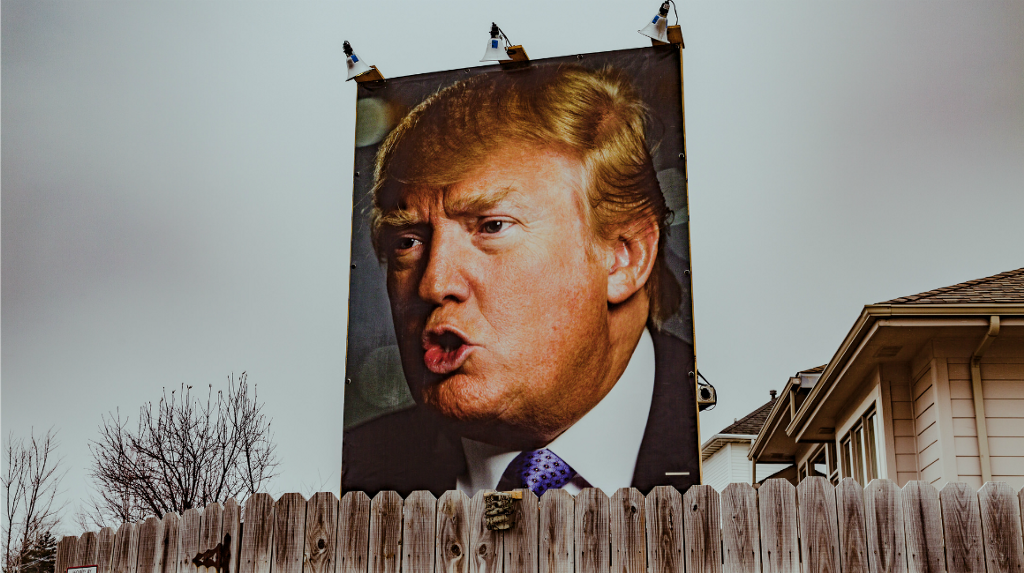
By Alexandra Rosenmann

In two interviews — one from the 2011 documentary Kingdom of Survival, and one from this month with AlterNet writer Aaron Williams — Noam Chomsky shares his views on the current political climate in America and the leading GOP candidate.
***
Noam Chomsky has frequently argued that not only do we not have a capitalist system, but no capitalist system has ever survived.
“What we have is a state capitalist system with the state playing a substantial role in American history, in economic development, production and research to keep the private sector viable,” Chomsky said in one of his classic interviews.
Chomsky is not a big fan of modern times. One of his favorite periods of American history wasn’t even in the past century.
“The Industrial Revolution was the period of the free-est press ever in the United States,” Chomsky explained. “There were lots of different newspapers representing different classes and ethnic groups.”
The working-class press was expressing the people’s point of view. It reacted to the wage labor idea that became a major issue of the Republican Party.
“[By participating in] wage labor, you are renting yourself, which is not that different from being a slave except that it will end sometime,” says Chomsky. Self management and institutional control of an organization are perfectly feasible alternatives.
“[The only problem is that they] conflict with the structure of existing power systems] and therefore the educational and cultural system tries to drive them out of your minds and make them seem insane or crazy or unthinkable, but there’s nothing unthinkable about them.”
Watch the entire Chomsky segment from Kingdom of Survival below:
***
Noam Chomsky, 87, is without a doubt the most significant academic figure to cast a highly critical eye on U.S. foreign policies. The 2016 U.S. presidential primaries are in motion and with democratic socialist Bernie Sanders challenging Hillary Clinton for the Democratic presidential nomination, it may be prudent for valued thinkers like Chomsky to turn that eye in on American soil and the inner gears of its political machine.
Aaron Williams: Many people now get their daily news via the news feed on their social media accounts. Unfortunately, these articles are sometimes posted by publications with a particular political leaning and use misleading or misinforming titles that paint their side more favorably. Fortunately, there are many who see past the headline and leave critical feedback.
Noam Chomsky: Furthermore, social media tend to be quite superficial. And they appear to encourage what some young people call “skim reading.”
Williams: How important do you think social media has become these days for making an informed public and how much of an impact do you think it can have on grassroots movements?
Chomsky: They are useful for organizing, but as information sources they do not begin to compare with print media, in my opinion. Nor do TV or radio.
Williams: Bernie Sanders has been quite outspoken about breaking up banks that are “too big to fail.” Rolling Stone recently published an article that speculated on the idea ultimately doing more harm than voters may realize, with corporate bank spinoffs making much more money than they would before a breakup, with some people being driven out of banking to form much less regulated hedge funds. What is your opinion on this? Do you think banks that are “too big” should be broken up?
Chomsky: The consequences should be carefully explored. I haven’t done so.
Williams: What are your opinions on the surprising progress of Donald Trump? Could it be explained by a climate of fear?
Chomsky: Fear, along with the breakdown of society during the neoliberal period. People feel isolated, helpless, victims of powerful forces that they do not understand and cannot influence. It’s interesting to compare the situation in the ’30s, which I’m old enough to remember. Objectively, poverty and suffering were far greater. But even among poor working people and the unemployed, there was a sense of hope that is lacking now, in large part because of the growth of a militant labor movement and also the existence of political organizations outside the mainstream.
Williams: With like outspoken socialists Bernie Sanders and UK Labour Party leader Jeremy Corbyn’s current successes, is this a new political age and is this a direct result of austerity?
Chomsky: Sanders, in my opinion, is an honest and decent New Deal Democrat. Corbyn expresses stands of traditional Labour. The fact that they are regarded as “extreme” is a comment on the shift to the right of the whole political spectrum during the neoliberal period.
Williams: Who do you see becoming the next U.S. president?
Chomsky: I can express hopes and fears, but not predictions.
***
These articles originally appeared on AlterNet. Interview by Aaron Williams.
Lead Image: flickr/ Tony Webster

